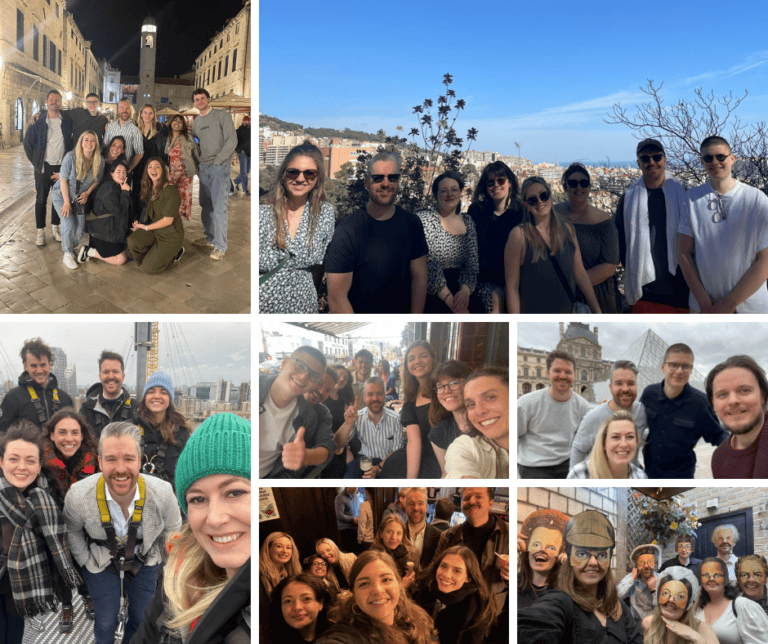Today, there are over one billion websites on the internet. Among these are almost innumerable travel websites. And with such a large number of travel sites to choose from, users will only click on your website if you can give them exactly what they want. The main challenge for any travel business is getting noticed. Leveraging this awareness is one of the main benefits of link building.
Internet users don’t have time to sift through hundreds of irrelevant pages; instead, they expect relevant information in a quick, efficient manner. It is no longer sufficient to write a well-formulated blog about the world’s most awe-inspiring destinations. Travel link building has become an SEO must for those looking to step out from the crowd online.
In this article, we’ll unravel how link building can help increase traffic to your travel website.
What is Link Building?
Before we go any further, we need to define exactly what link building is… Link building is the process of increasing the quantity and quality of links both to and within your website. When you create backlinks through various SEO marketing strategies, these links will point back to your site, bringing both visitors and valuable ‘link juice’ with them.

This is one of the most important factors that search engines use to determine whether or not your website should sit higher on SERPs (search engine results pages). When you build links, you’re essentially creating a bridge from other relevant websites to your own. This bridge is what’s going to help you get more traffic and valuable leads to your travel website. Not only that, but backlinks from websites that search engines deem reliable bring a certain level of authority with them.
If you want to rank higher, it’s important to make sure that your link-building strategy focuses on building links that are relevant, non-spammy and high-quality.
How Link Building Benefits Travel Websites
Ensuring that your website has a high level of authority is crucial to any overarching travel SEO strategy. One of the key means of achieving this authority is through building high-authority links to your site from others.
To use a somewhat crude travel metaphor, think of your website as a holiday destination. In order to build on tourism levels, you need people to visit your destination. And with each visit enjoyed by your tourists comes recommendations to friends, family etc. But the more significant the visitor, the bigger the impact. I.e. Beyonce spending her holidays there is going to be far more advantageous than a visit from Bill from down the road. There have even been studies on the matter. This is how link building works too. The more influential the person (website) linking to your destination (website) the more authority your website will have. With this comes better exposure on the SERPs.
But how do you know whether a website has this level of influence? The best means of deciphering this is by checking their Domain Authority (DA) – a ranking scale used by search engines to discern how reliable and authoritative a website is. The more high-DA websites linking to your site, the more your rating will climb up. Use tools like SEMRush to find out which websites have a high Domain Authority rating.
Also, by adding high-quality backlinks to your travel website, you’ll not only be creating a positive influence on your travel site’s authority, but also attracting extra traffic from these additional sources. Bonus!
The next question is what is the best means of attaining these links…
Travel Link Building Strategy
In all honesty, link building is a branch of digital marketing that often combines a lot of work for little reward. There are a few different avenues that you can meander down in order to bolster your link building strategy.
Here is a selection of some useful tactics to implement into your travel link building strategy:
Guest Blogging
Guest blogging is one of the more effective means of securing valuable backlinks. There is a huge range of travel blog sites online, from casual small-scale bloggers to industry celebrities, and if one or more of them accept your guest blog post, you’ll have the opportunity to link back to your own website.
Draft blogs that are personal to the website that you are targeting. For example, a hotel-centric blog is unlikely to be interested in a piece on deep sea diving. You should also avoid overt self-promotion. Instead, focus on linking back to relevant pages on your website through relevant anchor text.
By this we mean linking a given phrase that you want to be associated with the page that you are linking to. So if you were linking to a page on beginners hikes in Nepal, you may work the likes of terms like “easy hikes in the Himalayas” or “best easy treks in Nepal” into your copy and use it as the anchor text. This should tie into your overall keyword targeting strategy for optimal SEO results.
Effective Digital PR Strategy
Digital PR has become a must for every marketing strategy. Incorporating a means of bolstering your brand via effective exposure through notable publications has always been of value. Nowadays, backlinking is an additional benefit for your travel company’s PR strategy.
Whether doing so yourself or through a travel PR agency, ensure that the published pieces that you are mentioned in make effective use of the backlinking angles available. That means, similar to above, incorporating specific phrases within the copy and using these phrases as the anchor text for your links. This brings with it both a level of authority and a connection between your brand and the term in question.
Attending Industry Events
Attending events has always been a must for anyone operating in the travel industry. A means of creating business connections through face-to-face communication, travel conferences – like the WTM in London – have no real equivalent in terms of the value that they provide. Nowadays, that value extends to the digital side of your marketing strategy too.
By creating connections, you can offer the mutual benefit of backlinking to one another’s websites. For example, an airline that operates within your focus nation may offer to backlink to your site through a relevant travel content series if you return the favour. A mutually-beneficial marketing relationship that sees both company websites prosper.
Don’t Forget About Internal Linking
It is important to remember that any effective travel link building strategy incorporates the links from within your own site as well as those from others. Internal links operate as a tour guide for Google’s bots as they crawl the website. They not only point them in the right direction but also underline which pages matter most.
Again, anchor text is key here. Linking to the right pages through the right phrases add relevance and pertinence to the pages that you want to focus on. Focus on what the ideal structure for your site would be and use that as a roadmap. And don’t forget there is also value in reviving old content if it holds relevance to new developments on your travel website.
Final Words
In conclusion, link-building is an essential part of any marketing strategy. If you want to boost relevant traffic to your site, then you need to build more links to your site. While it can seem overwhelming, if you focus on creating high-quality content, you are sure to experience the true benefits of such exercises.
For more information about how to build links to your travel website, feel free to reach out to us. You can book a call with our team 02072886204 or email us online@signifydigital.com




